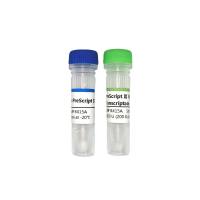Reverse-Phase Protein Microarrays
互联网
561
Cancer is the consequence of intra- and extracellular signaling network deregulation that derives from alteration of genetic and proteomic cellular homeostasis. Mapping the individual molecular circuitry of a patient’s tumor cells is the starting point for rational personalized therapy.
While genes and RNA encode information about cellular status, proteins are considered the engine of the cellular machine, as they are the effective elements that drive cellular functions, such as proliferation, migration, differentiation, and apoptosis. Consequently, investigations of the cellular protein network are considered a fundamental tool to understand cellular functions. In the last decades, increasing interest has been focused on the improvement of new technologies for proteomic analysis. In this context, reverse-phase protein microarrays (RPMAs) have been developed to study and analyze posttranslational modifications that are responsible for principal cell functions and activities. This innovative technology allows the investigation of protein activation as a consequence of protein–protein interaction or biochemical reactions, such as phosphorylation, glycosylation, ubiquitination, protein cleavage, and conformational alterations.
Intracellular balance is carefully conserved by constant rearrangements of proteins through the activity of a series of kinases and phosphatases. Therefore, knowledge of the key cellular signaling cascades reveal information regarding the cellular processes driving a tumor’s growth (such as cellular survival, proliferation, invasion, and cell death) and response to treatment.
Alteration to cellular homeostasis, driven by elaborate intra- and extracellular interactions, has become one of the most studied fields in the era of personalized medicine and targeted therapy. RPMA technology is a valid tool that can be applied to protein analysis of several diseases for the potential to generate protein interaction and activation maps that lead to the identification of critical nodes for individualized or combinatorial target therapy.







